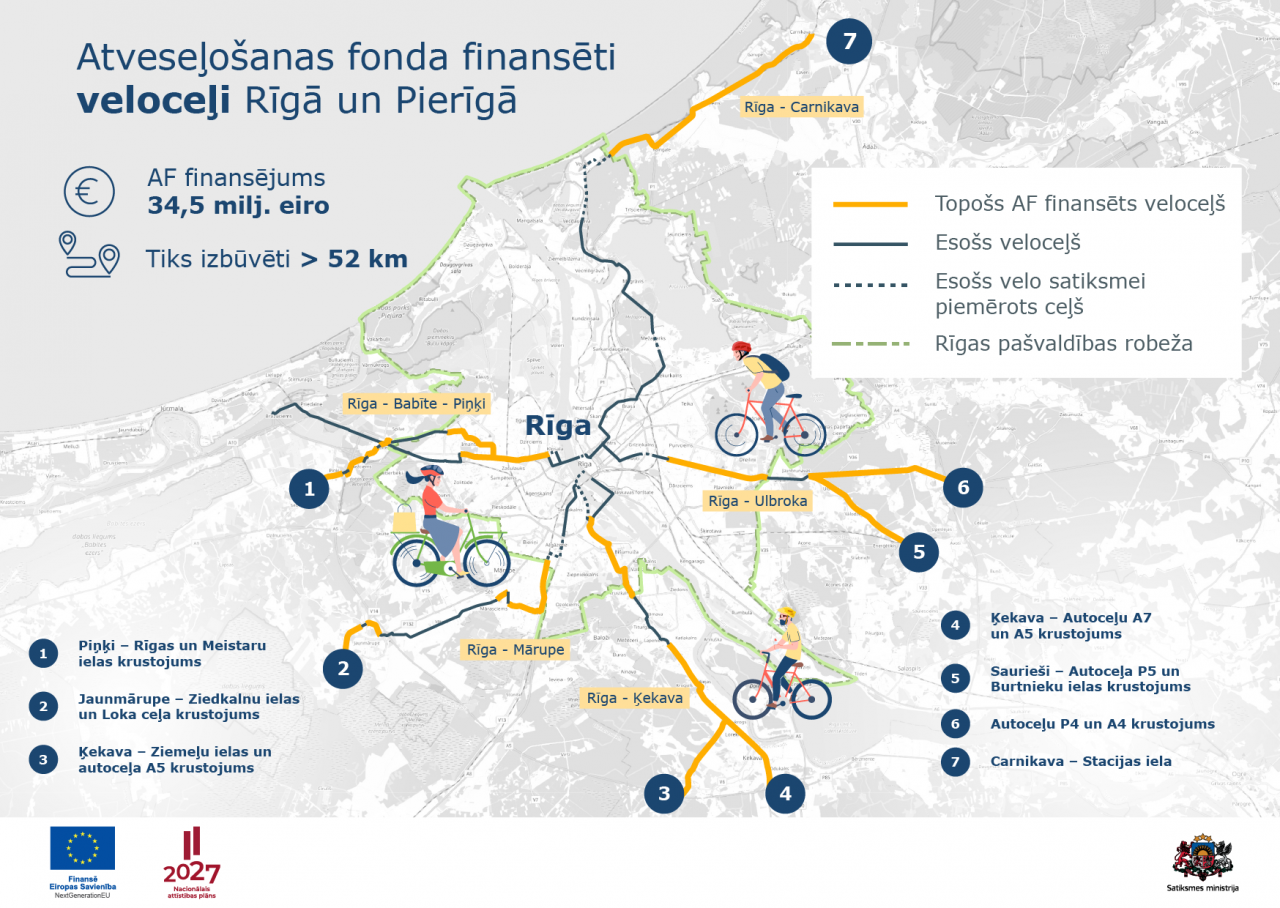This week, Latvia was the first Baltic State to begin discussions with the European Commission (EC) on the submitted Recovery and Resilience Facility (RRF) plan. Overall, six themed discussions are planned concerning each direction of the plan, as well as several high level discussions to talk about the reforms and objectives provided for in the RRF plan for Latvia.
The discussion repeatedly emphasised that observing the recommendations of the EU (European Union) Council is the most important requirement for the approval of the RRF plans of the member states and for the allocation of funding. It needs to be emphasised that Latvia has integrated in the draft RRF such recommendations as allocating investments to green transformation and digital transition, focusing investments on innovation, sustainable transport and digital infrastructure.
A second requirement is that the planned investments must be related to the reforms. First of all, the plan must include aims and the reforms required for achieving those aims, and the investments for their realisation. Following these principles and EU recommendations, it is planned to allocate the RRF investments for the implementation of the following structural reforms: transition to sustainable transport, energy efficiency in all sectors (in the field of climate), enhancing the solutions of information and communication technologies in the public sector for the improvement of entrepreneurial environment (in the field of digital transformation), efficiency of the network of health services (in the field of reducing inequality), raising productivity, consolidation of higher education institutions (in the field of transformation of economy), as well as strengthening the combating of illegal economy and economic crime (in the field of rule of law).
The RRF is a new budget programme under the centralised management of the EC, established in addition to the EU multiannual budget for the programming period of 2021 - 2027. The purpose of the facility is to support reforms, the need whereof has been specified in the European Semester Country Specific Recommendations, as well as investments, specifically those related to the transition to a green and digital economy, as well as to reduce the social and economic impact caused by the crisis.
Implementation conditions for specific RRF investment projects will be developed after specific planned investment measures are approved by the Cabinet. In accordance with the conditions of the RRF Regulation, the final version of the RRF plan is to be submitted for approval to the EC and the EU Council by 30 April 2021, at the latest. The RRF funds might be available for Latvia in the second half of this year.
To prevent the harm caused by the COVID-19 pandemic to the economy and social field, to stimulate the recovery of Europe, as well as to protect and create jobs, this spring the EC proposed to introduce a large-scale European recovery plan. A significant part of the European recovery funding has been allocated to the RRF. The creation of the EU support facility on such a scale within such a comparatively short timeframe is unprecedented. At the end of 2020, the EU legislators reached a conceptual agreement regarding the RRF regulation, which is expected to be approved by the European Parliament at the beginning of February this year.
The work on the introduction of the RRF is being organised in six directions - climate change and sustainability, digital transformation, transformation of economy and productivity reform, health, reducing inequality and the rule of law. Following the EC recommendations, 20% of the RRF funds are planned to be allocated to digitisation and 37% - for achieving climate objectives. It is planned to allocate EUR 330 million (20% of the RRF funds) for reducing inequality, EUR 181.5 million (11%) – to the health sector projects, EUR 165 million (10%) – to transformation of economy and productivity reforms, and EUR 33 million (2%) – for strengthening the rule of law.
The draft RRF plan is available for review to anyone interested on the MoF website and the EU fund website. Comments and proposals regarding the draft RRF plan and appendices thereto can be submitted in an electronic form by March 9 this year to the email address: rrf@fm.gov.lv.
